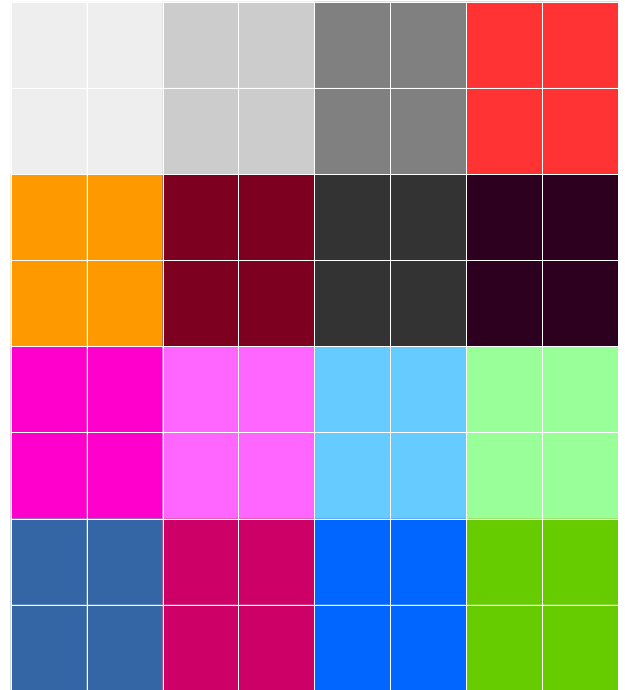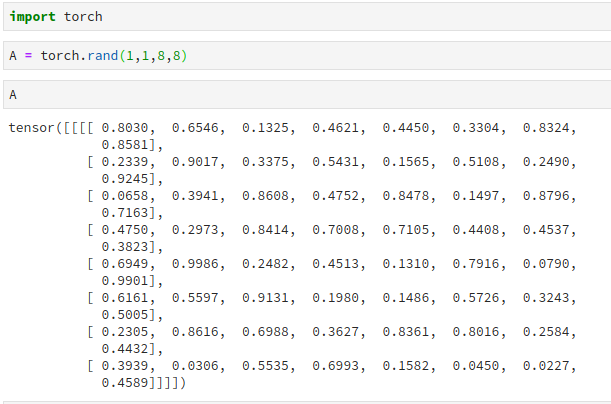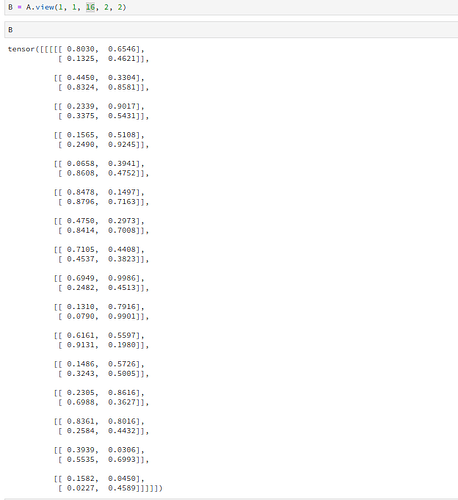I have a solution but maybe not the most elegant one. First, let’s work with the following tensor for A to make it easier :
>>> A = torch.tensor(np.arange(2*3*64)/10.0).reshape(2, 3, 8, 8)
>>> A.shape
torch.Size([2, 3, 8, 8])
>>> A[0, 0]
tensor([[0.0000, 0.1000, 0.2000, 0.3000, 0.4000, 0.5000, 0.6000, 0.7000],
[0.8000, 0.9000, 1.0000, 1.1000, 1.2000, 1.3000, 1.4000, 1.5000],
[1.6000, 1.7000, 1.8000, 1.9000, 2.0000, 2.1000, 2.2000, 2.3000],
[2.4000, 2.5000, 2.6000, 2.7000, 2.8000, 2.9000, 3.0000, 3.1000],
[3.2000, 3.3000, 3.4000, 3.5000, 3.6000, 3.7000, 3.8000, 3.9000],
[4.0000, 4.1000, 4.2000, 4.3000, 4.4000, 4.5000, 4.6000, 4.7000],
[4.8000, 4.9000, 5.0000, 5.1000, 5.2000, 5.3000, 5.4000, 5.5000],
[5.6000, 5.7000, 5.8000, 5.9000, 6.0000, 6.1000, 6.2000, 6.3000]],
dtype=torch.float64)
and then we can take B as follows:
>>> temp = A.view(2, 3, 32, 2)
>>> ind = np.arange(32)
>>> ind2 = ind.reshape(8, 4).T.reshape(16, 2)
>>> B = temp[:, :, ind2, :]
>>> B2.shape
torch.Size([2, 3, 16, 2, 2])
>>> B[0, 0, 0]
tensor([[0.0000, 0.1000],
[0.8000, 0.9000]], dtype=torch.float64)
So the blocks in B are created as intended. The next 2x2 block is
>>> B[0, 0, 1]
tensor([[1.6000, 1.7000],
[2.4000, 2.5000]], dtype=torch.float64)
And for the 2x2 block in the second column of A:
>>> B2[0, 0, 4]
tensor([[0.2000, 0.3000],
[1.0000, 1.1000]], dtype=torch.float64)
![]()



 it is a little slow, but still faster than brute force way
it is a little slow, but still faster than brute force way